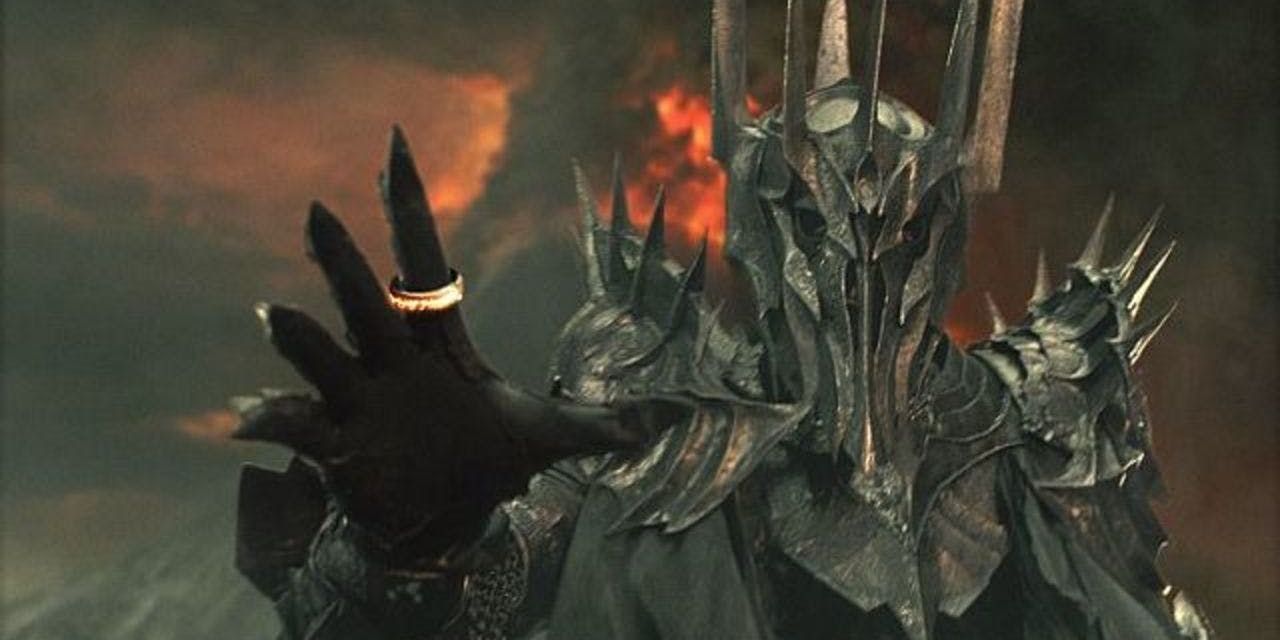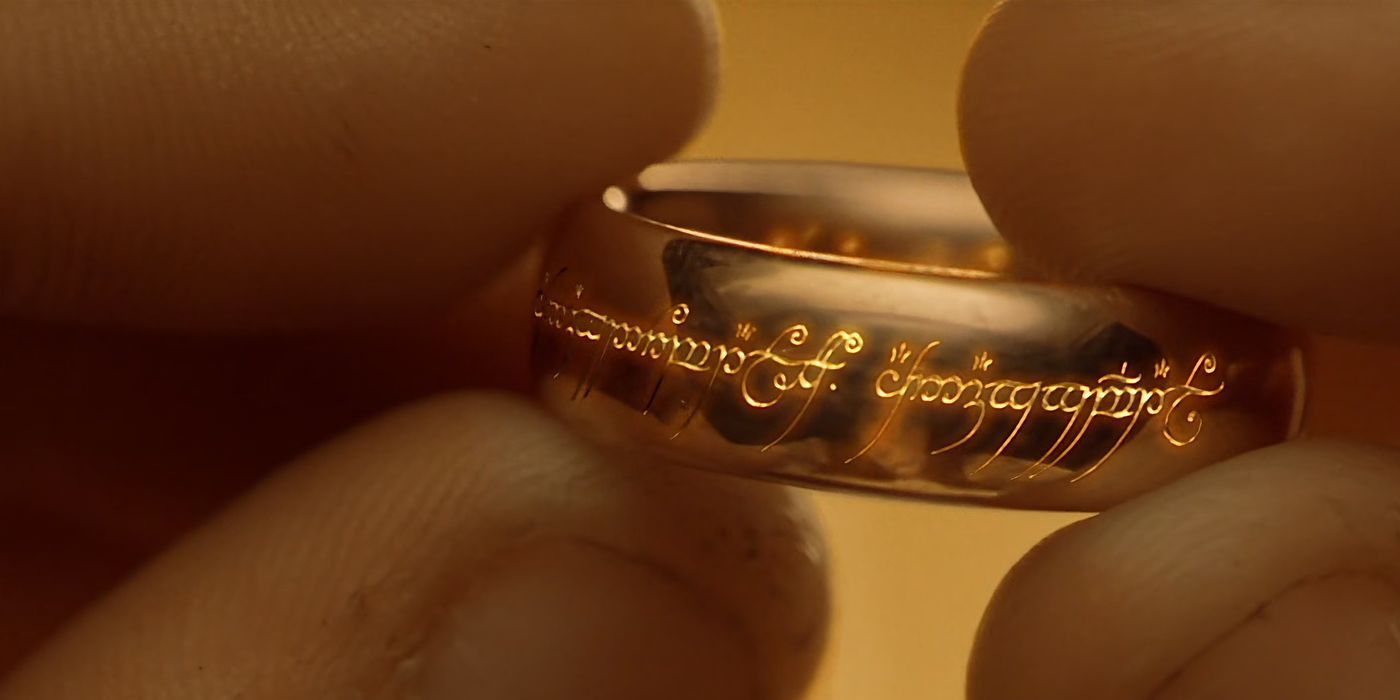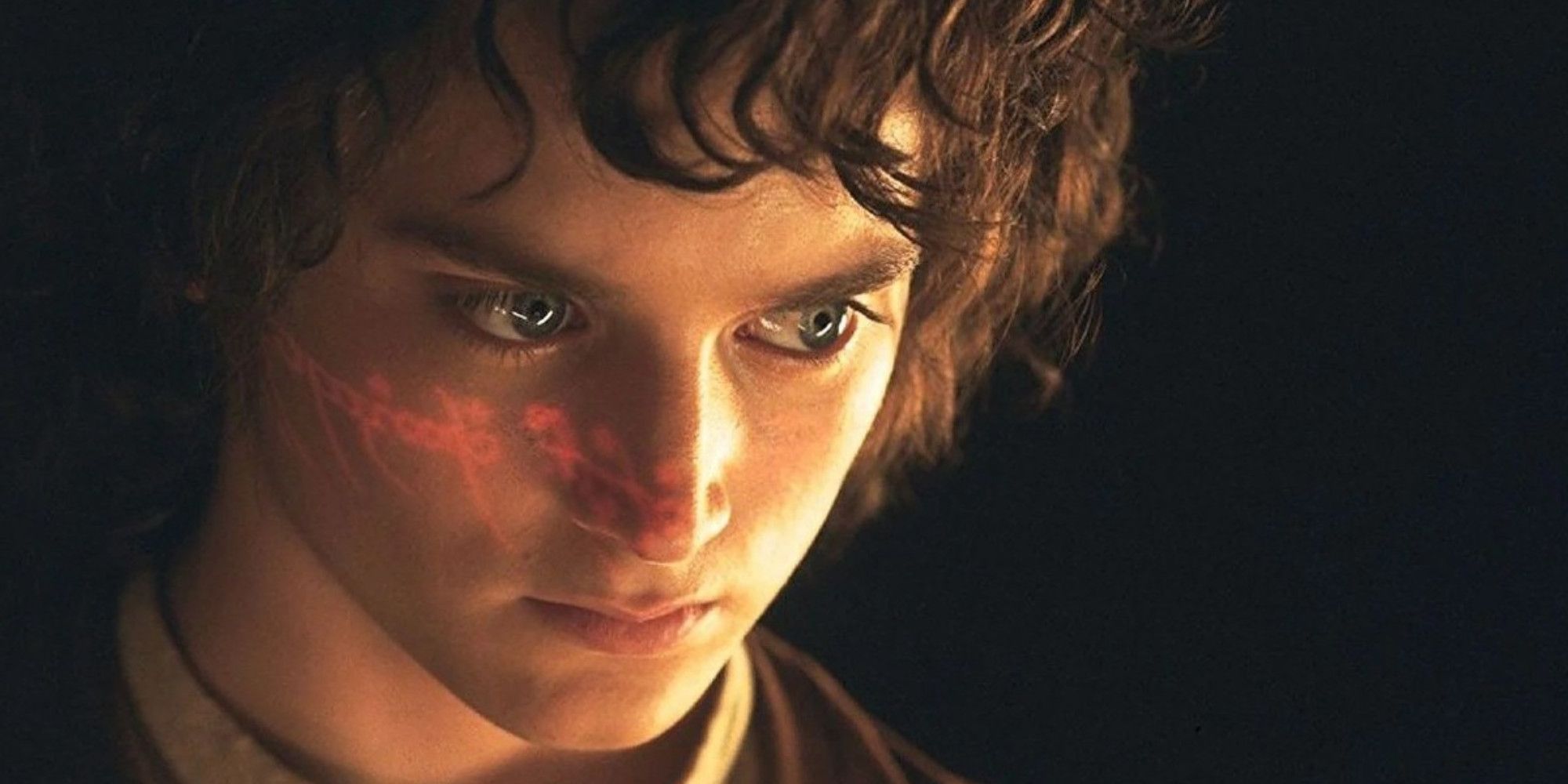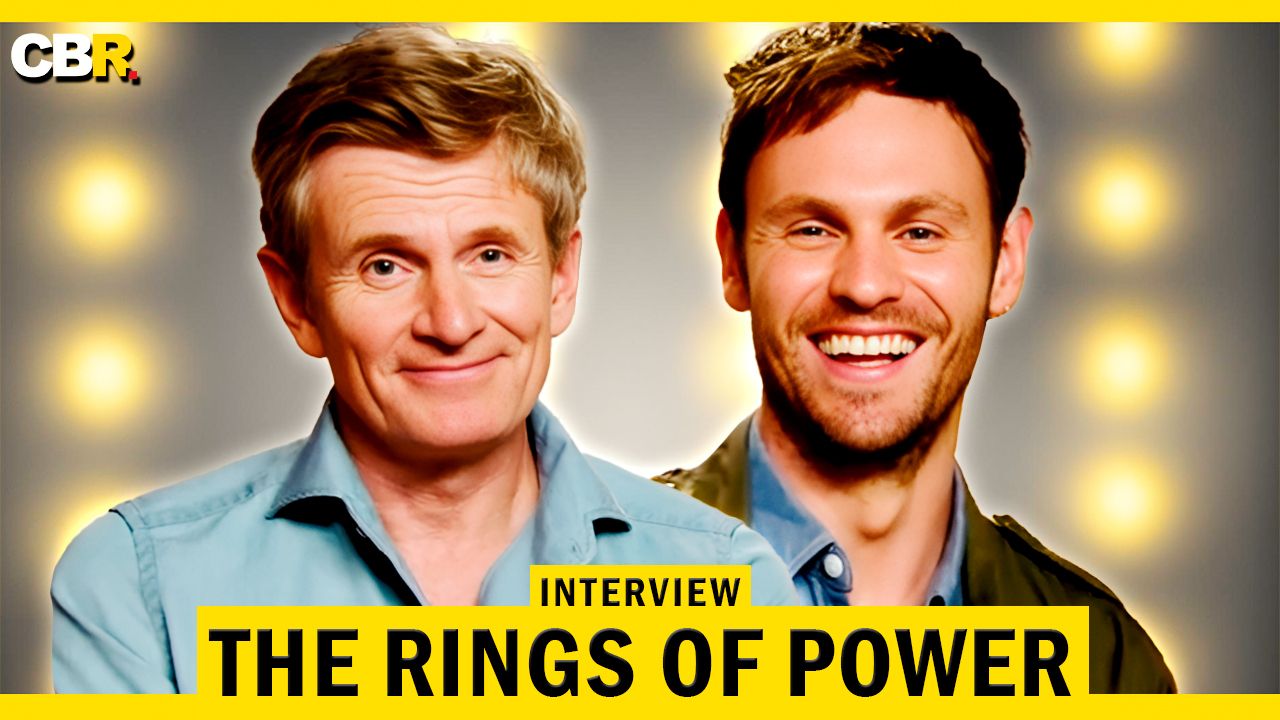Despite the popular wisdom of not judging a book by its cover, surface-level details like titles are an important part of any piece of media. Whether they are clear descriptions of the plot or vague phrases to build intrigue, titles are the simplest way to generate audience interest in a novel, film, or television show. When author J. R. R. Tolkien wrote his epic sequel to The Hobbit, he initially planned to give it a rather simple title: The Magic Ring. But after some deliberation, he instead settled on The Lord of the Rings. Due to the immense popularity of the novel and Peter Jackson’s film adaptations, The Lord of the Rings has practically become synonymous with the fantasy genre, and it is well-known by die-hard fantasy buffs and casual moviegoers alike.
Sauron Was the Original Lord of the Rings

Within the novel, the first instance of the title is in the chapter “Many Meetings” from The Fellowship of the Ring, shortly after Frodo awoke in Rivendell. When Gandalf explains to Frodo who the Nazgûl are, he refers to them as “the Nine Servants of the Lord of the Rings.” In the following chapter, Glorfindel directly calls Sauron the Lord of the Rings when discussing what to do with the One Ring. In Tolkien’s mind, Sauron was the one and only Lord of the Rings, meaning the novel was named after its main antagonist. This was the opposite of The Hobbit, which was named after its protagonist, Bilbo. The chapter “The Grey Havens” from The Return of the King gave an in-universe explanation for the title of the novel by revealing that The Lord of the Rings was actually short for a longer title; when Frodo wrote his story down in the Red Book of Westmarch, he entitled it, “The Downfall of the Lord of the Rings and the Return of the King.” The title was therefore a celebration of Sauron’s defeat in the War of the Ring and Aragorn’s ascension to the throne of Gondor.
A similar title, the Lord of the Ringwraiths, belonged to the Witch-king of Angmar rather than Sauron.
It makes sense that the Lord of the Rings was one of Sauron’s many titles, as he was more connected to the Rings of Power than any other character in Tolkien’s lore. It was he who came up with the idea for the Rings of Power, and he taught the Elves of Eregion how to create them as part of his plot to conquer Middle-earth. He then forged the One Ring that would let him control all the other Rings of Power. The One Ring was an extension of Sauron himself, for he imbued it with much of his strength and will. He was the first and most powerful wielder of the One Ring, and since he was tied to it, he could not be permanently defeated unless the One Ring was destroyed. However, Sauron was not the only character referred to as the Lord of the Rings in the novel.
Frodo Was the Master of the One Ring


At a later point in “Many Meetings,” Pippin exclaimed, “Here is our noble cousin! Make way for Frodo, Lord of the Ring!” What followed was one of the earliest examples of Gandalf scolding Pippin for his foolishness: “Evil things do not come into this valley; but all the same we should not name them. The Lord of the Ring is not Frodo, but the master of the Dark Tower of Mordor, whose power is again stretching out over the world. We are sitting in a fortress. Outside it is getting dark.” Pippin sarcastically added, “Gandalf has been saying many cheerful things like that.” Though this exchange did not happen in Jackson’s version of The Fellowship of the Ring, Gandalf expressed a similar sentiment. When Saruman tries to convince him to join forces with Sauron, he replies, “There is only one Lord of the Ring, only one can bend it to his will, and he does not share power.”
Ring-bearers in The Lord of the Rings
Time Spent as Ring-bearer
Sauron
S. A. 1600 – S. A. 3441
Isildur
S. A. 3441 – T. A. 2
Déagol
A moment in T.A. 2463
Sméagol / Gollum
T. A. 2463 – T. A. 2941, a moment in T.A. 3019
Bilbo Baggins
T. A. 2941 – T. A. 3001
Frodo Baggins
T. A. 3001 – T. A. 3019
Samwise “Sam” Gamgee
About two days in T.A. 3019
Despite Gandalf’s protests, one could make an argument that Frodo was the Lord of the Rings or at least the Lord of the One Ring. Only Frodo had the strength and determination to carry the One Ring across Middle-earth without succumbing to its corrupting power or losing it to the forces of Sauron. Though he eventually gave in to the One Ring’s temptation, he had made it to the Crack of Doom, so fate was able to intervene and destroy the One Ring. Sauron created the One Ring, but he did not truly have power over it; in fact, he was so subject to the One Ring that its destruction brought about his own. Frodo, on the other hand, survived the ordeal. By destroying the One Ring, Frodo also rendered the other 19 Rings of Power inert. However, Frodo was humble, so he would not have called himself the Lord of the Rings or wanted others to, especially since Sauron gave it an evil connotation.
The Rings of Power Referred to a Different Character as the Lord of the Rings
The episode “Where the Stars are Strange” from The Rings of Power‘s second season mentioned the title of the Lord of the Rings for the first time in the series. It referred to neither Sauron nor Frodo but Celebrimbor. Sauron — or Annatar as he called himself when pretending to be an emissary of the Valar — told Celebrimbor, “I can unlock your grandest abilities. And when our work is complete, never again will the world overlook you… but forevermore revere you the Lord of the Rings.” This was part of his manipulation, as Celebrimbor desperately wanted to create something important. He believed that the Rings of Power were key to solving Middle-earth’s greatest problems, such as the slow decay of the Elves.

LOTR: The Rings of Power stars Charlie Vickers and Charles Edwards tell CBR how Celebrimbor and Sauron are evolving in Season 2 of the TV series.
Celebrimbor certainly deserved the title of the Lord of the Rings, as he and his fellow Elven smiths were those who actually created the Rings of Power; the One Ring was the only Ring of Power that Sauron personally forged. In the novel, Celebrimbor even created the Three Rings for the Elves without Sauron’s knowledge or involvement, although they were still subject to the One Ring since Celebrimbor used Sauron’s techniques to do so. Though Annatar presented the Lord of the Rings as a positive title in The Rings of Power, it will certainly be one that Celebrimbor comes to hate if he learns the true evil nature of his creations. The fact that The Lord of the Rings could potentially apply to so many aspects of the story is proof of its effectiveness as a title.





